Global Politics Lecture Series at EISPS
29 September 2020
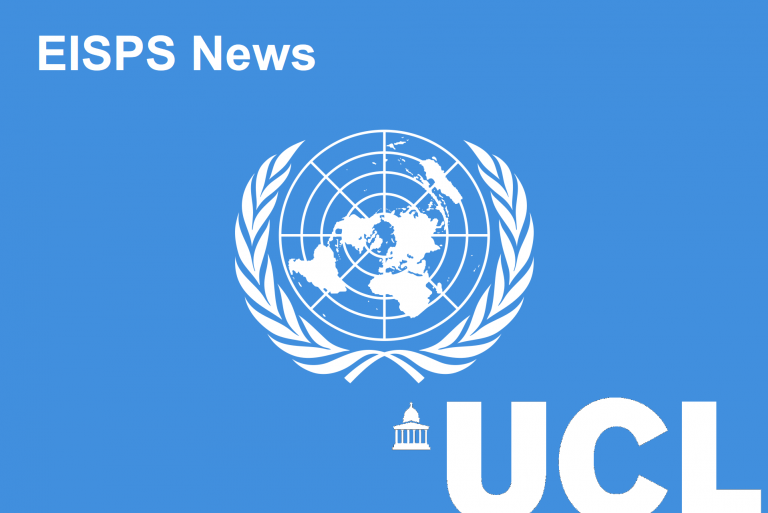
EISPS GLOBAL POLITICS LECTURE SERIES
I: Wednesday, September 30th, 5pm to 6pm
Will Donald Trump get re-elected?
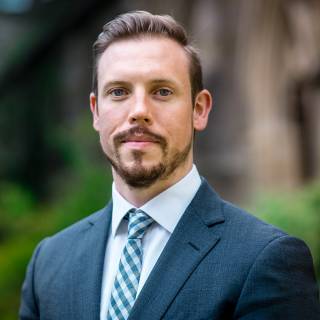
On November 3rd, Donald Trump will face off against Joe Biden in what is almost certain to be the most consequential election in modern American history. For the entire summer, Biden has had a steady and healthy lead in the national polling. But can we trust the polls? What about the electoral college – which states are likely to matter most? Will the pandemic affect turnout? What about the fight over the Supreme Court? And what’s behind Trump’s constant claims that the election is going to be rigged? In this talk, UCL Associate Professor of Global Politics Brian Klaas, who previously co-managed a successful campaign for Governor of Minnesota, will explain what to expect as America lurches toward Election Day.
Brian Klaas is an associate professor of global politics at University College London. He has authored three books, The Despot’s Accomplice, The Despot’s Apprentice, and How to Rig an Election. He is a weekly columnist for the Washington Post and hosts the award-winning Power Corrupts podcast. Klaas is a regular commentator on BBC Radio 4, CNN, MSNBC, BBC News, Bloomberg, CNBC, and Sky News. Klaas received his BA from Carleton College and his MPhil and DPhil from the University of Oxford.
Link: https://ucl.zoom.us/j/96648112885?pwd=SHNobEdLcGszOVJBcEUxN3BGVWp2Zz09
Meeting ID: 966 4811 2885
Passcode: 434783
II: Wednesday, October 7th, 12pm to 1pm* NOTE TIME CHANGE
Nuclear Politics on the Korean Peninsula
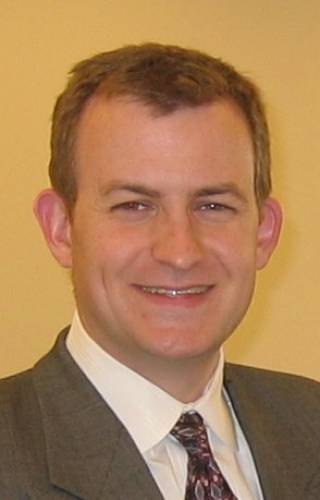
The Kim dynasty has ruled North Korea, arguably the world’s most totalitarian country, for decades. Throughout that period, nuclear politics have been central to the regime’s survival, as international negotiations have repeatedly sought to de-nuclearize the Korean peninsula. Despite those diplomatic efforts, North Korea is widely believed to have several viable nuclear warheads. Professor Kelley will give a primer on nuclear politics on the Korean peninsula and explore what lies ahead for Kim Jongun’s grip on power.
Robert Kelly is an Associate Professor of Political Science at Pusan University (Korea). He is also known to the world as “BBC Dad,” rose to global fame when his children gatecrashed an interview he was giving live on the BBC news channel. Kelly is a regular on BBC World News, Al-Jazeera, and China Central Television and he regularly writes for Foreign Affairs and The Diplomat. Kelly received his BA from Miami University and his MA and PhD from Ohio State University.
Link: https://ucl.zoom.us/j/91470120788?pwd=TlM5SzNDUDQ0SkFBV3FtRmh4VVErdz09
Meeting ID: 914 7012 0788
Passcode: 514777
III: Wednesday, October 14th, 5pm to 6pm
Deepfakes and the Infocalypse: The Crisis of Disinformation

Technology is rapidly changing. With the click of a mouse, nefarious actors can now create deepfakes, manipulated video and audio that is convincing. That technology is rapidly advancing, creating opportunities for foreign adversaries to create fake videos of politicians saying things they never said, while also creating worrying implications for our privacy in the digital age. Can our politics keep up? And what is coming next in the AI revolution?
Nina Schick is an author and broadcaster recently authored the book Deepfakes and the Infocalypse. She has advised a group of global leaders including Joe Biden, the former Vice President of the United States, and Anders Fogh Rasmussen, the former Secretary General of NATO, on deepfakes. She is a contributor to Bloomberg, Sky, CNN and the BBC. She has been published by The Times, CNN, the Daily Beast, TIME, and the New Statesman amongst others. Schick speaks seven languages and holds degrees from Cambridge University and University College London.
Link: https://ucl.zoom.us/j/92402150776?pwd=ZGdsWXdCdC9EQ1B5a0ZRSFR2ZmpxQT09
Meeting ID: 924 0215 0776
Passcode: 424549
IV: Wednesday, October 21st, 5pm to 6pm
The Authoritarian Pandemic? Repressive and Democratic Implications of COVID19

How have authoritarian regimes responded to the covid-19 crisis? Are they exploiting it in order to repress their people? Are they using the crisis to rig elections and change constitutions, while the rest of the world is busy worrying about their own crises? Or is the pandemic creating unrest and anger from a disaffected citizenry that could upend dictatorships? In this talk, Professor Cheeseman will explore how authoritarian governance and democratic governance are faring during the pandemic and show how dictators and despots are using the crisis as a smokescreen for their agendas.
Nic Cheeseman is Professor of Democracy at the University of Birmingham and was formerly the Director of the African Studies Centre at Oxford University. He mainly works on democracy, elections and development and has conducted fieldwork in a range of African countries including Ethiopia, Ghana, Kenya, Malawi, Nigeria, Uganda, Zambia, and Zimbabwe. Professor Cheeseman is also the author or editor of ten books, including Democracy in Africa (2015), Institutions and Democracy in Africa (2017), How to Rig an Election (2018), and Coalitional Presidentialism in Comparative Perspective (2018). In addition, he is the founding editor of the Oxford Encyclopaedia of African Politics, a former editor of the journal African Affairs, and an advisor to, and writer for, Kofi Annan's African Progress Panel.
Link: https://ucl.zoom.us/j/97216769173?pwd=d2V0b1BWVEFiTkp1UWFTNjdsNFVLZz09
Meeting ID: 972 1676 9173
Passcode: 711683
V: Thursday, October 29th, 5pm to 6pm* NOTE THURSDAY
As Much Truth as We Can Bear: Race in America and the 2020 Election

After the death of George Floyd in Minneapolis earlier this year, the United States has been forced to confront its long history of racism and racial injustice. Between widespread unrest and riots in American cities, Black Lives Matter protests, incendiary rhetoric from President Trump, and a surge of white nationalism, the United States has entered a period of extreme volatility centered around race relations heading into the November election. This talk will look at America’s long and ugly legacy of racism, the ways it affects US politics, and what may lay ahead.
Eddie S. Glaude Jr. is a professor in Princeton’s Department of African American Studies. His most well-known books, Democracy in Black: How Race Still Enslaves the American Soul, and In a Shade of Blue: Pragmatism and the Politics of Black America, take a wide look at black communities and reveal complexities, vulnerabilities, and opportunities for hope. Glaude completed his undergraduate studies at Morehouse College. He holds a master’s degree in African American Studies from Temple University, and a Ph.D in Religion from Princeton University. He is a regular contributor to MSNBC and is one of the foremost commentators on race relations in the Trump era. Glaude’s most recent book is Begin Again: James Baldwin's America and Its Urgent Lessons for Our Own.
Link: https://ucl.zoom.us/j/97374093353?pwd=QXlYeE8xa2ZMdmh4V0tWY2ZQOXVLZz09
Meeting ID: 973 7409 3353
Passcode: 085103
VI: Wednesday, November 4th, 5pm to 6pm
The Dragon and the Eagle: China’s Foreign Policy after the US Election

Long regarded as the world’s fastest-growing power, China has become a significant counterweight to American power in the 21st century. In recent years, however, there have been growing concerns that the uneasy struggle for global dominance between China and the United States could lead to more consequential tensions. During the Trump era, China and the United States have engaged in trade wars and sparred over issues related to every part of the globe. This talk will explore how the results of the November 3rd presidential election will affect Beijing’s thinking and gaze into the future of President Xi’s foreign policy.
Rana Mitter is a professor of the history and politics of modern China at Oxford University. He is the author of several books, including Modern China: A Very Short Introduction (2008, new ed. 2016), and the award-winning A Bitter Revolution: China’s Struggle with the Modern World (2004). Mitter’s most recent book, China’s War with Japan, 1937-45: The Struggle for Survival was named as a 2013 Book of the Year in the Financial Times and the Economist, was named a 2014 CHOICE Outstanding Academic Title, and won the 2014 RUSI/Duke of Westminster’s Medal for Military Literature. Mitter regularly presents film and television programmes about modern China. His writings frequently appear in international media, including Financial Times, International New York Times, Guardian, Telegraph, Caijing, and Outlook (India).
Link: https://ucl.zoom.us/j/94079190676?pwd=VmNTMkZOek5KWmJueWUxbjZlcnRnUT09
Meeting ID: 940 7919 0676
Passcode: 642560
VII: Wednesday, November 18th, 5pm to 6pm
Privatizing Governance in the Digital Age: Threats to Democracy and Rule of Law

Tech giants have transformed the world at breakneck speed. But has regulation kept up? Have tech companies been given a blank check to re-orient our public spaces in ways that are poisonous to core liberal values, such as democracy and rule of law? This talk will look at the ways in which the gaps in public regulation of digital spaces has created a vacuum that is corrosive to core aspects of our society – and how to fix it.
Marietje Schaake is the international policy director at Stanford University’s Cyber Policy Center and international policy fellow at Stanford’s Institute for Human-Centered Artificial Intelligence. She was named President of the Cyber Peace Institute. Between 2009 and 2019, Marietje served as a Member of European Parliament for the Dutch liberal democratic party where she focused on trade, foreign affairs and technology policies. Marietje is affiliated with a number of non-profits including the European Council on Foreign Relations and the Observer Research Foundation in India and writes a monthly column for the Financial Times and a bi-monthly column for the Dutch NRC newspaper.
Link: https://ucl.zoom.us/j/94532560616?pwd=cE9IVGxSZkd2NGhjR1ZBbTFxQTlPUT09
Meeting ID: 945 3256 0616
Passcode: 785854
VIII: Wednesday, November 25th, 5pm to 6pm
The Global Governance of Climate Change
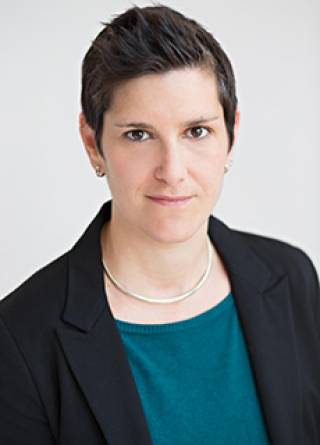
This summer, there was an unprecedented spread of wildfires across the western United States at the same time that a much higher number of hurricanes swirled around the Atlantic. There are signs everywhere that the climate is changing – and scientists agree that it is an extremely serious threat to humanity. But why is the world so slow to act? What are the challenges that need to be overcome to make serious progress? And can global governance tackle climate change before it’s too late?
Jessica Green is an associate professor in international relations at the University of Toronto. She focuses on questions related to climate governance, non-state actors, private authority, global governance, and transnational regulation. Green is the author of Rethinking Private Authority: Agents and Entrepreneurs in Global Environmental Governance (Princeton University Press, 2014), along with several articles on carbon markets, delegation to non-state actors, transnational regulation, regime complexity, and organizational ecology. She has published in journals including Nature, International Organization, Global Environmental Politics, International Interactions, Regulation and Governance, and blogs regularly for the Washington Post.
Link: https://ucl.zoom.us/j/94764577202?pwd=TWVQb0F4SXY5NEV6bWNUMTU4SkFVZz09
Meeting ID: 947 6457 7202
Passcode: 198908
IX: Wednesday, December 2nd, 5pm to 6pm
What will Brexit mean?

As the United Kingdom and its allies are saddled with the crushing economic damage from the pandemic, there are still plenty of reminders that the pesky B-word hasn’t gone away: Brexit. Will the UK be able to arrange a free trade deal with the European Union on time? Will Boris Johnson be able to deliver the “global Britain” that he promised? Will the UK end up breaking international law or reneging on its treaty commitments? And will Brexit end up being as disastrous for the economy as some predict?
Anand Menon is professor of European politics and foreign affairs at King’s College London. He is director of the UK in a Changing Europe a unique initiative funded by the Economic and Social Science Research Council that aims to make the findings of social scientific research available and accessible to all non-academic audiences interested in Brexit, the Brexit process and its implications. Menon has been on just about every television and radio programme in Britain educating listeners and viewers about Brexit since 2016.
Link: https://ucl.zoom.us/j/92176577740?pwd=SVZaMEVhdlJOZ2J2M1dkazN5eWZMQT09
Meeting ID: 921 7657 7740
Passcode: 054188
X: Wednesday, December 9th, 5pm to 6pm
Is Populism Here to Stay?
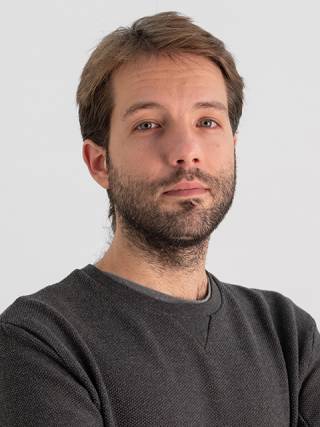
Dr. Katsambekis will discuss his new paper, recently published in the Journal of Political Ideologies, titled "Constructing ‘the people’ of populism: a critique of the ideational approach from a discursive perspective." Dr. Katsambekis will critique the mainstream approaches to populism that see the phenomenon merely as a moralistic view of society that advocates a monist/homogeneous view of the people. Instead, he will offer a fresh way of understanding populism - one that provides more nuance to an overly simplified caricature of a phenomenon that has affected politics across the globe.
Giorgos Katsambekis is lecturer in European and International Politics at Loughborough University. He studied political science at the Aristotle University of Thessaloniki, where he also received an MA (2009) and PhD (2015). He has worked as a postdoctoral researcher and an adjunct lecturer at the same department, where he has also been a member of the POPULISMUS research team since 2014. Giorgos is the managing editor of the interactive map of the Observatory of Populist Discourse and a member of the interdisciplinary Centre for the study of Democracy, Signification and Resistance (DESIRE), coordinated by Vrije Universiteit Brussel. He joined POLIS at Loughborough University in November 2017. He is the founder and convener of the Populism Research Group (PRG) at Loughborough, which was established in September 2018.
Link: https://ucl.zoom.us/j/93387604727?pwd=NzdPWHlkZlRNZHh6MDdjM1dlZ1Bxdz09
Meeting ID: 933 8760 4727
Passcode: 721409
XI: Wednesday, December 16th, 5pm to 6pm
The Psychology of Conspiracy Belief

From Trump to Orban, Q-Anon to the “faked” moon landing, conspiracy theories have spread like wildfire in the digital age. Conspiracy theories that used to be confined to fringe newsletters are now racing across Facebook, Twitter, Instagram, and TikTok. The spread of such false beliefs are infecting global politics, too, as voters make decisions based on incorrect information and sometimes, outlandish lies. So why do so many people fall for such fake information? Why are some people predisposed to engage in conspiratorial thinking, attributing perfectly normal behavior to something much more sinister? This talk will explore the psychology behind conspiracy theories.
Christopher French is the Head of the Anomalistic Psychology Research Unit in the Psychology Department at Goldsmiths, University of London. He is a Fellow of the British Psychological Society and of the Committee for Skeptical Inquiry and a Patron of the British Humanist Association. He has published over 150 articles and chapters covering a wide range of topics. His main current area of research is the psychology of paranormal beliefs and anomalous experiences. He frequently appears on radio and television casting a sceptical eye over paranormal claims. His most recent book is Anomalistic Psychology: Exploring Paranormal Belief and Experience
Link: https://ucl.zoom.us/j/91450811135?pwd=dUEwZWIxN3hXUzB0V2FubVZNUExOUT09
Meeting ID: 914 5081 1135
Passcode: 470666
 Close
Close

